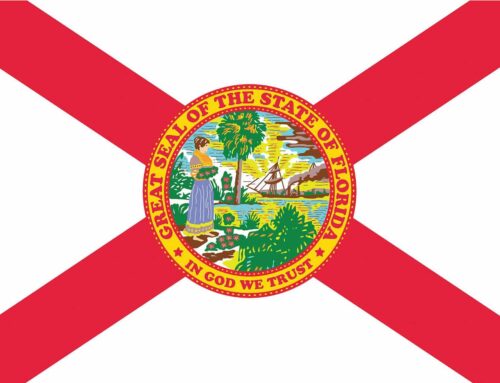Insurance companies noticed years ago that people with bad credit, as a group, are riskier drivers than people with good credit. People with bad credit are more likely to file car insurance claims. And the claims that they do file tend to be for larger dollar amounts than people with good credit.
Theories abound. But nobody is entirely sure why.
And there are, of course, exceptions: There are many people with good credit who are terrible drivers. And people with disastrous credit who are excellent drivers.
But apply the Law of Large Numbers, and the data doesn’t lie: Any way you slice it, the data indicates that groups of 10,000 people with poor credit are more expensive to insure than groups of 10,000 otherwise similar drivers with good credit.
In fact, auto insurers have found that drivers’ credit history is a better predictor of risk than their actual driving history.
Which is, of course, why car insurance companies want to use your credit history as part of their criteria when it comes to setting rates or even whether to offer you a policy in the first place.
Credit-Based Underwriting Is Prohibited In Some States
Some states—including California, Hawaii, Washington, Massachusetts and Michigan— limit or prohibit insurance companies’ use of credit information in underwriting decisions.
So if you reside in one of these states, your credit score won’t affect your premium. However, insurance companies tend to charge more simply because they can’t use your credit history to set your premiums. In other states, however, the practice is routine.
What does bad credit cost car insurance customers?
Carriers all price risk very differently. Each carrier has its own theories about how a negative credit history interacts with other underwriting factors. And so pricing can vary widely between carriers for bad-credit customers even within the same Zip Code. But on average, drivers with bad credit (FICO Score of 579 or lower) pay 114% more than drivers with excellent credit.
That means that fixing your credit can easily save you between $1,000 and $4,000 every year just on your car insurance!
And you don’t have to go from a FICO score of sub-600 to 800+ for your work improving your credit score to have a noticeable effect. In fact, just by adding 50 or 60 points can bump you up to a better credit “tier,” and net you car insurance premium savings of up to 19%.
Note: Car insurance companies don’t use the same FICO credit score that credit card companies and most other lenders do. Or even auto lenders. Instead, the Fair, Isaac Corporation (FICO) and LexisNexis have created specialty insurance credit scoring products specifically for insurance companies.
While the factors these companies use in computing your insurance score are very similar to the ones they use to compute your personal FICO credit score, they are weighted somewhat differently. For example, your FICO score assigns a 35% weighting to your recent track record of on-time bill payment. But the FICO Insurance rating score – created by the same company – assigns a 40% rating to your on-time payment record.
So paying bills on time is even more important to your insurance score than it is for your FICO score. And it’s the single biggest factor on your FICO score!
Simply becoming current on all your bills, paying off delinquencies, and keeping up with current payments for 9o days can make a big difference in your credit score. After a few more months, you’ll begin to qualify for better rates at many insurance companies.
First, don’t lapse!
Insurance companies regard people who let their insurance coverage lapse – even for a single day – as high-risk drivers. And they jack up premiums accordingly. Conversely, maintaining continuous coverage without a lapse for long periods of time tends to lead to lower premiums. According to The Zebra’s 2020 State of Car Insurance Report, people who just maintain their car insurance for a year without a lapse pay 8.3% less for car insurance than people with a lapse.
And the more insurance you carry, the more powerful the effect!
After five years without a lapse, customers save an average of 8.9% for state minimum liability coverage, and 15.1% for a 100k/300k liability policy compared to people who lapsed within the previous year.
What’s more, according to Zebra’s report, drivers who go years without lapsing coverage retain those savings – even when they switch to a different company.
This is because insurance companies share information on drivers’ lapse records, and use it to set their premiums.
Lower your credit utilization ratio.
The idea is to have access to credit – and then not to use very much of it!
Let’s say you have three credit cards – each with a spending limit of $5,000, for a total of $15,000 in available credit. (We’re not addressing installment loans or other forms of credit here. Just revolving credit accounts such as credit cards).
If you max them all out at once, your credit utilization ratio is 100%. If you have a balance of $7,500 on all your cards combined, your credit utilization ratio is 50%.
A “good” credit utilization ratio is under about 30% or less. To get a top-flight credit score, you need to be at 10% or less, and ideally 7% or less at any given time.
However, you don’t want to be at zero. Because credit scoring companies don’t know what to do with that information! The ideal is to have a very low credit utilization ratio, while still using just enough to demonstrate to both lenders and insurance companies that you’re using your credit, you’re paying attention to your finances, and you habitually take care of obligations.
Keep your older accounts.
Part of your score is based on either the age of your oldest credit account, the average age of your credit accounts, or both. So cancelling old credit accounts as you pay them off doesn’t benefit your credit score. In fact, cancelling an old open credit card account can hurt you in two different ways: It lowers the average age of your credit accounts, and it lowers your total available credit. This, in turn, immediately increase your credit utilization ratio. And therefore hurt your credit and insurance scores.
So don’t cancel your old credit cards or lines of credit just because you haven’t used them in a while, or you’ve paid them off. Try to keep them current so they don’t cut you off, either.
Don’t Apply for Too Much Credit Too Fast.
Credit bureaus see a sudden increase in credit applications as a sign of trouble. People often try to apply for lots of credit right after a layoff, for example.
That said, credit bureaus, lenders, and insurance companies all understand that people shop around for things like auto loans and mortgages right before they make a major purchase. They also understand that applying for multiple auto loans or mortgages right before making a purchase is not predictive of future difficulties. Quite the opposite.
While you don’t want to apply for loads of credit cards one after the other, applying for multiple auto or mortgage loans within a month won’t hurt your score much. FICO treats multiple applications for these types of loans as a single inquiry.
Automate Your Bill Payments.
Late or missed payments can really hurt your credit score. That’s true with both consumer credit and insurance reports. Many people can improve their credit scores significantly by automating routine payments like utilities and credit cards. You can set up alerts to let you know when a payment is about to post, so you can monitor and reality-check your payments.
You probably don’t want to go on complete auto-pilot. But automating can significantly reduce the likelihood of a late payment, and the subsequent harm to your credit score.
Seek Credit Counseling.
If you find your bills are overwhelming, you may be able to get help from a qualified Consumer Credit Counselor.
Depending on your situation, they can give you some tools, techniques, and knowledge to help you get a handle on your finances and keep up with your bill payments.
They can also help you negotiate lower and more realistic payments with your creditors. Often, they can help you find a consolidation loan so you can lower both your interest rate and monthly payment while you work through the process.
Freedom Debt Relief can help by offering customized debt relief programs designed to reduce what you owe and make repayment more manageable.
Note: It’s illegal for credit counselors to charge you an up-front fee for fixing your credit, etc.
How To Find Your Insurance Score
You can order your personal credit report and ATTRACT insurance score, including all the information the company uses to calculate your insurance score, via the www.PersonalReports.LexisNexis.com web site.
Shop Around for Bad Credit Car Insurance
Once you’ve made some improvements to your credit, you should contact us to get updated quotes on your car insurance. Chances are when you bought your current policy, you got a fair-to-bad-credit rate. That can cost you $100 or more a month in car insurance premiums.
But not every company penalizes bad credit as much as others. And some carriers are more tolerant of middle credit tiers than others. So even if you’ve made just modest gains – perhaps by improving your credit score from 600 to 675, it’s still worth it to get a fresh batch of offers and quotes from competing carriers.
Just shopping around can save you significant amounts of money on your car insurance.
You’ll also find that by lowering your credit utilization ratio, and generally improving your cash savings situation, it will be very easy to lower your car insurance deductible – allowing you to reduce your car insurance premiums even more!
Take part of those savings on car insurance and use them to accelerate your debt payoff program even more. So you can increase your deductible and reduce car insurance premiums even more, in a virtuous cycle of savings! Or buy better coverage, like adding comprehensive or uninsured motorist insurance!
Once you get going, the process is addictive.
So once you’ve made some improvements, contact us to shop around for a better car insurance rate.
You should use an independent insurance broker to do this, not an agent or call center that’s captive to a specific company. At Select Insurance Group, all of our agents are fully independent. After one phone call, our agents can get you quotes from many different companies, all competing for your business.
Call us at (855) 438-7353, or fill out our easy online form today!
See you on the road!
Steve “Mr. Insurance” Ludwig
Related Posts
Marijuana Driving Laws – What You Need To Know
Save Money Now! A Guide To Car Insurance Discounts
Can’t Find Car Insurance? – Read This





